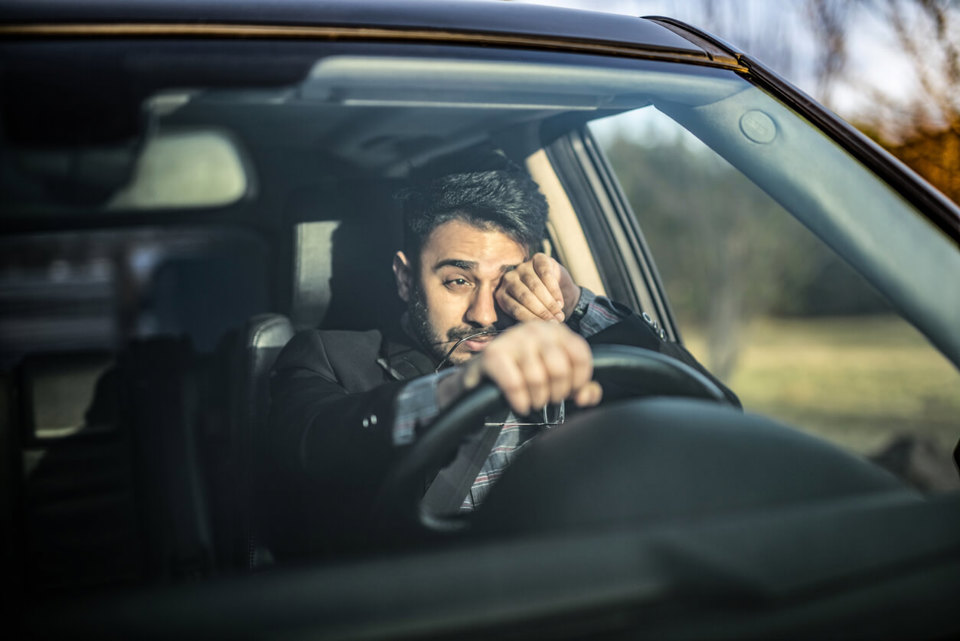The BBC has investigated some sleep issues causing problems for people across the UK in its programme ‘Goodnight Britain’.
One of the patients featured was Paul Ashbury, a van driver from Norfolk, with a serious snoring problem associated with excessive daytime sleepiness.
He was found to have sleep apnoea, a condition in which the muscles and soft tissue in the back of the throat collapse inwards during sleep, blocking the airway.
As a result, the sufferer will wake up briefly in order to restore normal breathing. This can happen hundreds of times throughout the night (without the sufferer realising it), and can cause excessive daytime sleepiness.
As a result of his diagnosis, Aashbury was asked to notify the DVLA and to stop driving for a period of four weeks while he is treated with a CPAP device (a device that keeps the airway open during sleep).
At the end of this four week period his GP notified the DVLA that he is now safe to drive and he is able to resume driving. He goes on to develop his career and achieve his HGV Class 2 licence.
Professor of Respiratory Medicine John Stradling, a member of a cross-industry sleep apnoea partnership group, said of the programme: “This was an excellent outcome for Paul and it is important to stress that OSA sufferers should not lose their driving licence, as long as they're being treated successfully.
“Many sleep centres will in fact fast-track professional drivers to ensure their treatment is commenced successfully in less than two weeks, in order not to impact on their career.
“Paul’s case also shows how effective treatment for sleep apnoea can dramatically improve the quality of life of sufferers, their families, and make the roads safer for everyone.”
People concerned about OSA symptoms, diagnosis and treatment, should visit www.realsleep.co.uk. The Sleep Apnoea Trust also has a useful leaflet on OSA and driving at www.sleep-apnoea-trust.org.

















Login to comment
Comments
No comments have been made yet.